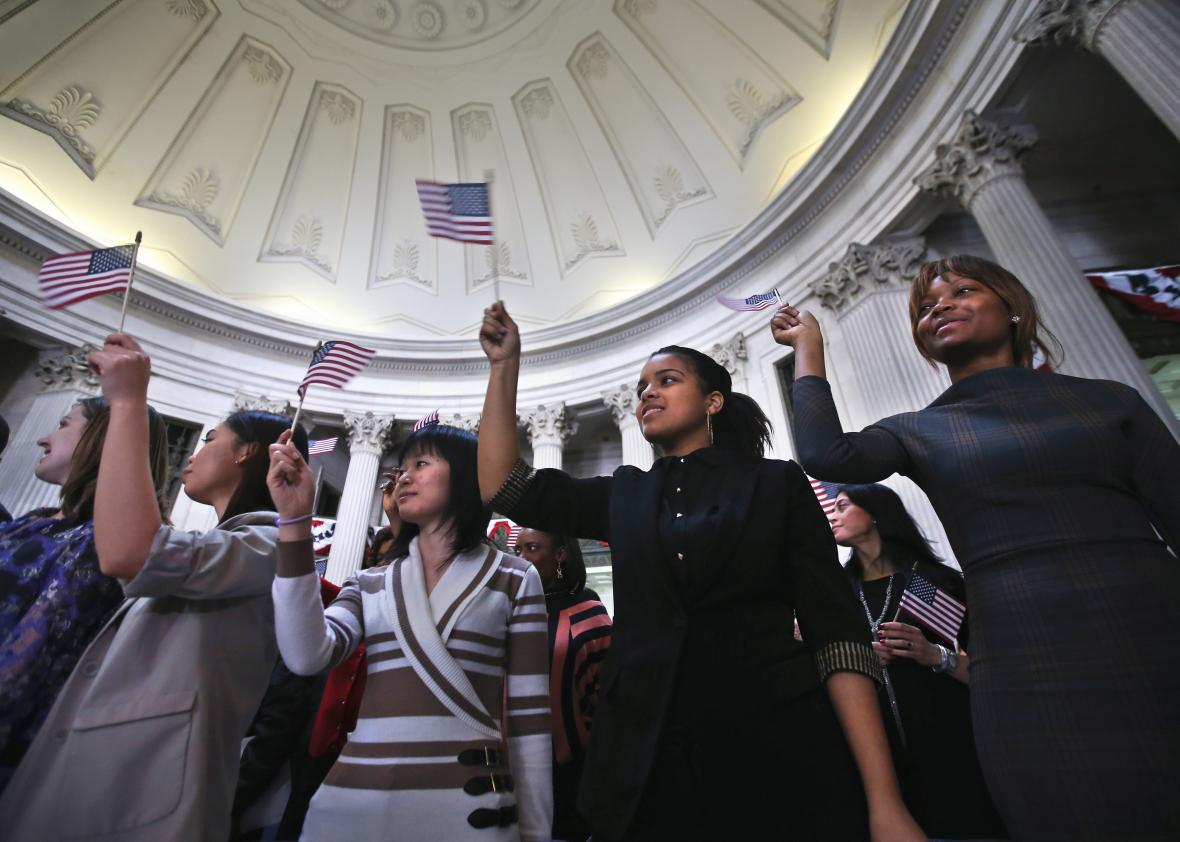America’s immigration system is often criticized for being geared toward uniting families rather than bringing in talented workers, especially by companies that would like to see more temporary guest visas for highly skilled employees. That, combined with the fact that so much of the immigration debate focuses on the undocumented, about half of whom have less than a high school degree, might have given you the impression that immigrants as a whole aren’t a particularly well-educated group.
But that would be incorrect. A great new Pew Research Center report this week reminds us that when it comes to education, immigrants are a sort of bifurcated group—less likely to have graduated high school than people born in the U.S., but also much more likely to have graduated college. Here’s the breakdown in two graphs, which are based on census data for immigrants over the age of 25 who arrived within the past five years, and don’t distinguish between documented and undocumented individuals.
First, high school graduation. Notice that the percentage point gap between natives and new arrivals widened during the ’80s and ’90s, but started narrowing after 2000.
Now take a look at college and advanced degrees, where immigrants have consistently had an edge. After closing a bit in recent decades, that gap is now widening again.
Why is the educational profile of recent immigrants improving? In part, Pew reports, it’s because Asian immigrants are now the largest group of new arrivals, and are much more likely to have finished high school or college than the Latin Americans who dominated in the past. But educational attainment has also been rising for immigrants from south of the border—for instance, 13 percent of recent Mexican immigrants had a college degree in 2013, up from 6 percent in 2000.
So immigration does bring more low-skill labor into the country, which itself isn’t necessarily a bad thing. But it also brings a lot more educated talent than some appreciate.
